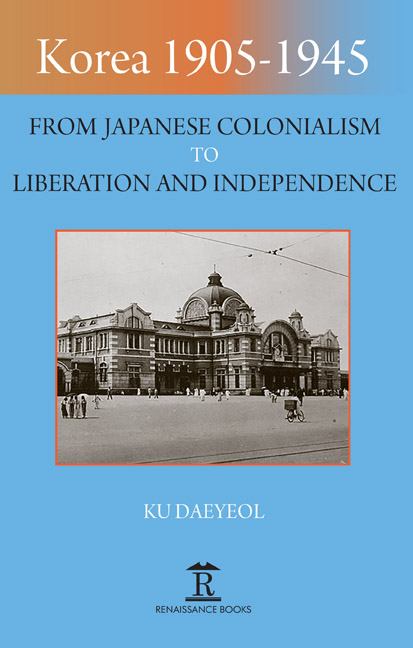Retrospective: Korea Through a Western Looking Glass
Published online by Cambridge University Press: 04 May 2022
Summary
FOR KOREANS, THE term “colonial Korea” connotes all the hell of its history.This study may, by looking at colonized Korea largely through a Western looking glass, add another blow to Koreans’ amour propre. The Western powers, especially Britain and the United States, not only approved Japan's occupation of the peninsula, but blessed Japan as a conveyer of civilization to backward Koreans. For the Koreans, it was like rubbing salt into an open wound. The views of the Western powers are, however, undeniable “historical realities,” and are one of the means by which today's liberated, divided and economically successful Korea has evolved.
The powers’ interests in Korea were primarily geopolitical. Economic, cultural and prestige-related elements, such as educational and religious/missionary concerns, were also involved, yet played a secondary role. For the Western powers, Korea's geopolitical value was related to their interests in East Asia as a whole. Their priority “practical” stakes in East Asia were economic, in essence, and they placed the greatest importance on China. Political and strategic issues revolved around the protection of these economic interests. For the United States, strategic interest in the Pacific was growing as naval competition with Japan became more acute. The Korean peninsula was considered in this context, and hence valued according to its impact on such strategic concerns. In short, Korea was only a minor factor in their East Asia policy, and an issue on which they were prepared to compromise with other powers in the region. After the Russo-Japanese War, Japan (who considered its own interests in the peninsula to be “vital”) and Russia resolved “the Manchurian question” between themselves, which became the focal point in the balance of power in East Asia. At the moment in history when Japan and Russia were making terms and achieving a sort of power equilibrium, Korea was annexed as part of the Japanese Empire. Yet in the early stages of the Pacific War, a U.S. State Department report noted that the settlement of the Korean question would still depend mainly on the “Manchurian question.”
- Type
- Chapter
- Information
- Korea 1905-1945From Japanese Colonialism to Liberation and Independence, pp. 203 - 210Publisher: Amsterdam University PressPrint publication year: 2021



